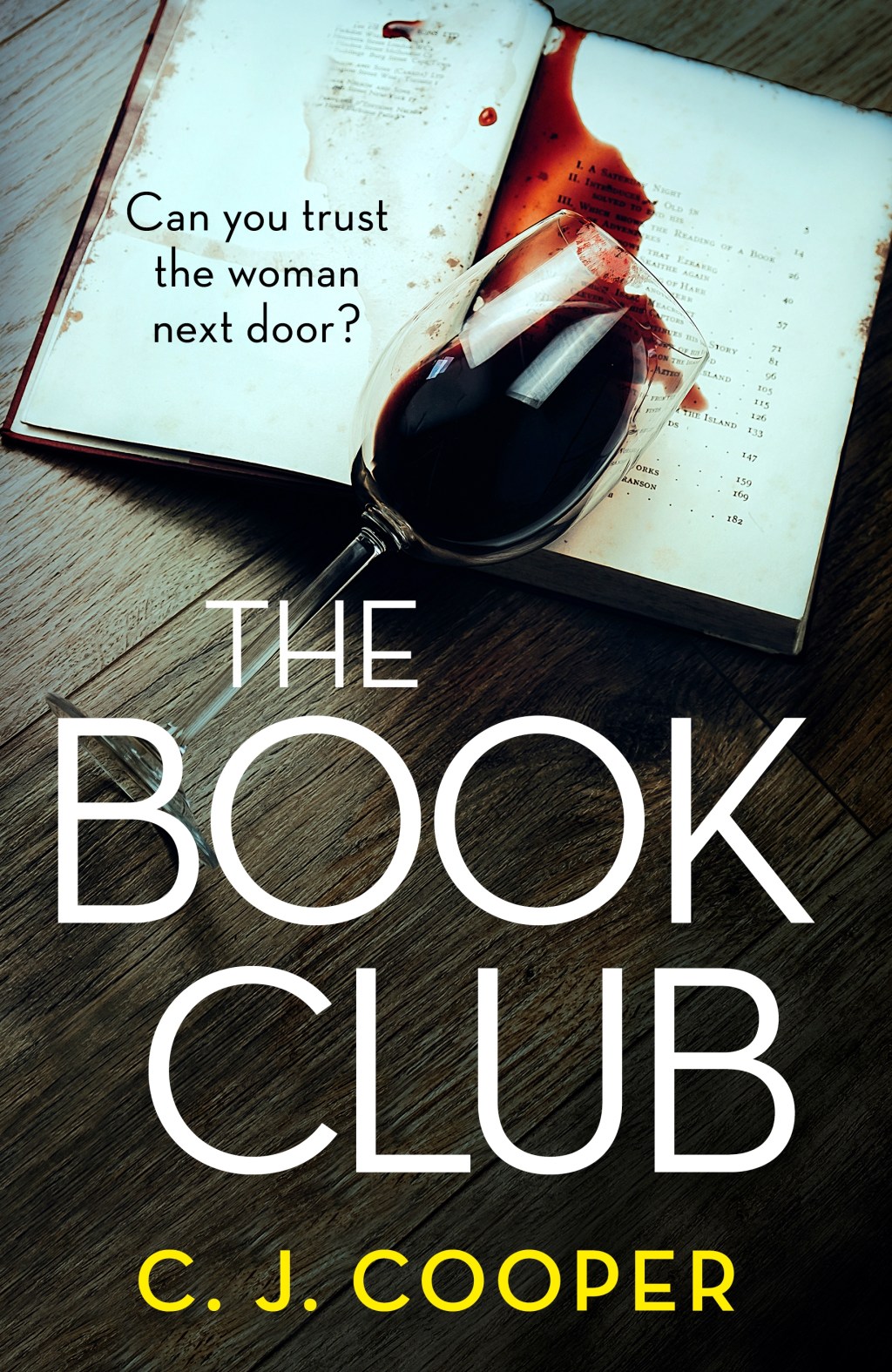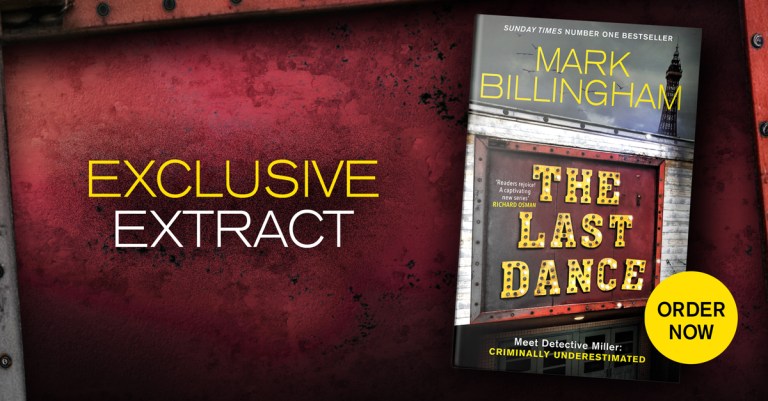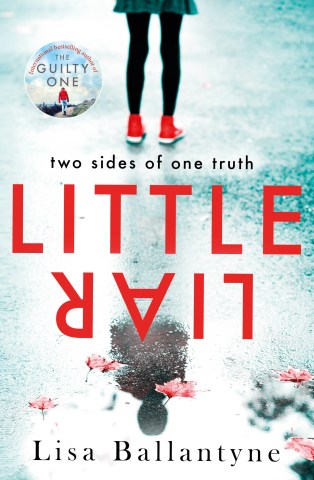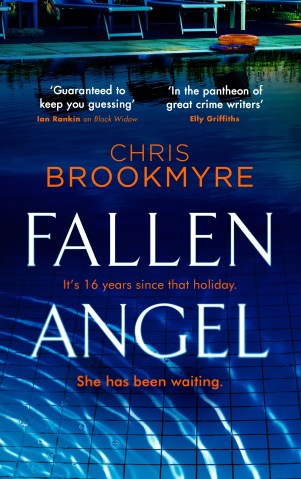The Book Club exclusive extract

Now
There’s that noise again. It’s a shrill, beeping sort of sound. Sometimes it’s so quiet I forget about it. Sometimes I can’t hear it at all. And then all of a sudden it’s back, and I know it was there all the time, hiding just beneath the other sounds: the voices and the footsteps, the scrape of a chair against the floor.
It’s strange, it’s familiar somehow. I think I should know what it is, but when I try to reach for it, the memory slips away. I tried asking them, the voices. I asked if they could hear it too, but they didn’t reply. That should have annoyed me – I could feel the edges of the anger against my brain – but when I tried to focus on the feeling it dissolved like smoke. I forgot my question, too.
What was it? Oh yes, that noise.
It’s high pitched; like I said, shrill. Like a whistle, almost. But no, not like that. Not continuous, more a series of sounds. Like a tap dripping, or a heart beating. Only not like that either. It’s almost musical, like a piano. No, a synthesiser. That’s right, electric. Just the one note, again and again.
It’s getting louder now.
It’s so bright in here. It must be those big windows at the front.
They’re concentrating the glare of the sun. I try to turn my head away, but the light is still there, so I screw up my eyes instead.
That noise, that note: can’t someone make it stop?
I want to move but I feel so tired, like I’ve been here too long and melted into place. Everything is heavy. Maybe I’m ill. Maybe I’m having a heart attack, or a stroke or something. Perhaps this is what it feels like.
The noise is still there, not growing in volume now, but persistent, clear. And there’s something else – something low and uneven and jagged-sounding. It rises and falls. There’s a pressure on my eyelid, but that can’t be right, because my eyes are open.
That can’t be right.
The low sound is still there. It has a pattern, I can hear it now.
Hmm-hmm, hmm-hmm.
The light is too strong, but I can’t shut my eyes, not with this thing on my eyelid.
And now the sound is getting clearer, almost like words.
It’s a voice, a woman’s voice. I try to look around, but my head is so heavy and something’s still pressing against my eye. The noises have gone: no more hum of conversation, no clatter of chair legs. Just that high electric beat and the sounds that are almost words.
Hmm-hmm, hmm-hmm.
And then I know what they are. ‘Lucy.’
I’m not afraid any more. I open my eyes.
Before
Chapter 1
It was so hot the grass had turned to straw right there in the ground the day I opened my door to the woman who’d try to kill me.
Of course I didn’t know that was what she was there for then. I just wished I’d cleaned my teeth after I’d got back from Tom’s, because when I opened my mouth to say hello and welcome her to the village, I could tell from her half-raised eyebrow and the way her lips turned down at the corners that she could smell the alcohol on my breath. I wondered later if that was when she got the idea about the wine bottle, but I suppose there’s no way of telling.
I’d returned from The Gables an hour or so before. The visit hadn’t been a success, though I had only myself to blame for that. I’d gone to ask Tom’s advice, but I hadn’t managed to get to the point. That’s what happens when you don’t want to tell people the truth: you spend so much time testing possible reactions in your head, filtering out anything that might take the conversation in a direction you don’t want it to go, that all of a sudden you find you’ve been there for twenty minutes and the other person is halfway into a story about Cynthia in the post office and her attitude to undelivered mail, and it’s too late to do anything but nod along and pretend you were just dropping by for a chat. Time’s up, ding ding!
So I’d sat there, hmm-ing in the right places, and every so often passing a surreptitious dog treat under the table to Ferdy, Tom’s cairn terrier; and just as I was thinking I should leave and let him get back to work (Tom, that is, not Ferdy), there was a scrunch of gravel and a ripple of laughter at the open door, and Maggie and Rebecca were bustling in.
I took in their Lycra leggings and rolled-up mats and told myself I didn’t mind that they hadn’t invited me to yoga or Pilates, or however they’d been spending their morning. They’d both lived in the village for years, after all. I couldn’t expect to be included in all their routines right away.
As if she’d read my mind, Maggie installed herself on the bench next to me and gave my arm a reassuring squeeze. ‘Wonderful that you’re here, Lucy! Saves us another visit. You’ll definitely want to hear this too.’
On the other side of the table Rebecca sat upright, eyes sparkling. ‘We’ve got news. We have a new arrival.’
For a moment I was confused, my eyes flicking down auto- matically to where the table would hide any sign of a pregnancy bump; but Tom caught my eye and laughed. ‘You mean someone’s moved into number 1?’
‘Got it in one!’ Maggie thumped the table, the large rings she wore cracking against the wood.
‘Well, not quite,’ Rebecca corrected her. ‘According to Cynthia, the postman said he’s been delivering mail there.’
Maggie was nodding vigorously, her glossy black bob swinging perfectly back into place. I’d considered asking for the number of her hairdresser before now, but suspected he or she was out of my price range.
‘So whoever’s taken it must be moving in soon,’ she said, swivelling to face me. ‘I bet you’ll be pleased to have someone next door, Lucy.’
I started to reply, but Rebecca cut across me. ‘Cynthia didn’t have any details, apparently.’ She pursed her lips. ‘I just hope whoever it is will make the effort to fit in.’
I half listened as they speculated. Truth be told, I wasn’t much interested in a new neighbour; years of living in London had bred what I considered a healthy lack of interest in the people the other side of a party wall. But clearly Tom, Maggie and Rebecca felt differently. Had it been the same, I wondered, when I’d moved into number 2? Had they sat around discussing whether I was going to ‘fit in’, whether I had anything more in common with them than membership of the village’s select under-40 demographic? And when they’d met me, had I passed the test?
I stopped myself. I was here, wasn’t I? They wouldn’t be talking like this if I hadn’t.
Tom had gone to a cupboard and returned with a dusty bottle with something dark inside. ‘We should toast the incomer,’ he said. ‘Anyone for a tipple?’
Maggie grinned. ‘Is that . . .?’
He nodded. ‘Oh yes. Aunt Lydia’s sloe gin. Once drunk, never forgotten.’
Rebecca tutted. ‘Really, Tom. It’s eleven in the morning! Besides, I have things to do.’ She got to her feet and smoothed back a strand of blonde hair. ‘There’s a cake sale at Ellie’s nursery tomorrow, so I’ll be in the kitchen all day.’ She gave a martyred sigh. ‘My honey and oat cookies are in demand.’
I caught Tom rolling his eyes and suppressed a smile. Next to me Maggie was reaching for her yoga mat. ‘I’ll come with you, Becs. Much as I love you all, I need to get back to the grindstone.’
She pulled me into a brief hug. ‘But you should stay, Lucy. That sloe gin is quite the experience!’
For a moment I considered leaving with the two of them, checking some job adverts, brushing up my CV . . . But then Tom was sloshing purple liquid into a glass and pushing it across the table, and I put it to my lips and told myself the day was still young. It went down like gasoline, streaking fire down the back of my throat, and Tom confessed afterwards that he sometimes used it for cleaning his paintbrushes; but it was surprisingly drinkable after the initial shock, and I was two glasses down and swaying gently by the time I made my way back to the cottage.
It wasn’t long after that that the lorry turned up. I’d been on the laptop, battling with Willowcombe’s erratic broadband signal, when I heard the rumble of its engine. I paused, head cocked like a meerkat. I love the village, but there’s no denying it does something to you, living in a place like this. The sound of traffic, the slam of a door, noises that in London I would barely have registered, are significant here, echoing against the silence of the Fosters’ holiday home on one side and number 1 on the other, the fields stretching up beyond the hill behind. Sometimes I like to hear them, the reminders of other lives; but I didn’t like the sound of that engine.
I heard it chug and hiss the way big vehicles do when they come to a stop, and braced myself for what would come next. Satnavs don’t work well in Willowcombe, and once or twice before lorry drivers had called at the cottage to ask for directions. There I’d be, standing in the doorway explaining that I’d only just moved in, while a white guy of a certain age and taste in T-shirts huffed and puffed like it was my fault he couldn’t read a map. Perhaps this time I’d pretend to be out.
I heard a door slam, then voices; but there was no creak of the gate. I ventured into the living room and poked my head around the corner of the curtain, registering even as I did so that it had taken me only three months to turn into the archetypal village snoop. The lorry had stopped outside number 1. I peered closer, squinting at the lettering on the side: Abaddon Removals, Pimlico. So the new neighbours were ex-Londoners too. Maybe we’d have something in common: we could reminisce over functioning mobile phones and the existence of public transport. Still, I wasn’t sure how it would go down in the village. I could just picture Cynthia in the post office muttering about an invasion of townies, how they’d all be making unreasonable demands about courier services and asking Willowcombe Supplies to replace jacket potatoes with quinoa.
I watched for a while, but the men were leaning against the lorry chatting and hadn’t even opened up the back. They must be waiting for the new tenants to arrive with the keys. I wondered if I should go over there when they turned up, introduce myself. That was what Rebecca would have done; she’d arrived on my doorstep the day I’d moved in, complete with a homemade sponge cake in a wicker basket. I thought I’d moved to Stepford.
I twisted my head in the other direction, half expecting to see her outside now, pretending to water her plants or take out rubbish while she kept her own lookout for a glimpse of the newcomer – incomer, that’s what they call us here. But there was no sign of movement outside number 4, and her car was gone. Maybe she’d interrupted her baking for some child-related errand, taking Oscar to football or Ellie to ballet.
The lorry drivers were smoking now, obviously not expecting to be called to action any time soon. I let the curtain fall back into place, trying not to ask myself whether this was really what my life had come to: spying on the new neighbours in the hope of having some gossip to relay to the others, sitting in the pub with Tom, Rebecca and Maggie, recounting the colour of next door’s sofa or whether they preferred brass bedsteads to wooden ones. If Richard could see me now, he’d congratulate himself on a lucky escape.
He’s probably doing that anyway. And why do you even care?
I told myself to get a life and went to the living room to watch Loose Women. And yes, as it happens, I do appreciate the irony in that.
She got me on the back foot from the beginning, but I suppose that was my own fault too.
I’d heard them moving about outside, the rattle as the back of the lorry was opened up. I thought if the new tenants had arrived I could offer them a cup of tea while the removal men did their stuff. I liked the idea of welcoming someone else to the village.
I didn’t want them to think I was nosy. My plan was to take a casual look out of the window, get the lie of the land. I picked up a book (Pride and Prejudice, in case they had exceptionally keen eyesight; I wanted to make the right impression) and took the three steps from one side of the living room window to the other. But it was no good; I’d been too intent on looking absorbed in the book to see anything more than a blur of figures and furniture. I counted to five in my head and tried again, this time pausing at the window, holding the book at chin height, the slightest of turns . . .
‘Jesus!’
I was looking directly into a pair of grey eyes. The book slipped from my fingers and fell to the floor, pages fluttering. I bent and snatched it up, feeling the blood rush to my face. Blushing is a great look when you’ve got red hair: Welcome to the neighbourhood, you’ve moved next door to a giant beetroot.
The woman outside the window was staring at me. She was about my age, I guessed, late twenties or perhaps a little older, with small, even features and light brown hair cut so that it brushed her shoulders. For a second we stood looking at each other through the glass, and I had a momentary sense of something cold and absent; but then she gave a short laugh and mouthed, ‘Sorry.’ She was one of those people who looked much nicer when they smiled.
I hurried to the door.
‘Hi, hi! You must be my new neighbour! It’s lovely to meet you!’
‘Yes, you too.’ She almost looked as if she meant it. ‘Sorry about . . .’
‘Oh no, my fault. I mean, I was just, er, having a lazy morning with a book.’
I’d leaned forward as I said it with suitable levels of enthusiasm, hoping to distract her from my root vegetable appearance; but as soon as the words left my mouth I realised my mistake. She pulled back and grimaced as the noxious fumes of Tom’s sloe gin washed over her. Oh, this was getting better and better. Not just any beetroot, but an alcoholic beetroot – as M&S definitely would not say, ever.
But the woman on the doorstep had steeled herself for introductions. She gave me another little smile, pretending she hadn’t noticed. ‘No need to be embarrassed. I don’t blame you for wanting to see who’s moving in next door.’
I peered over her shoulder, searching for a neighbourly response, then realised it looked like I was trying to check out her furniture. She moved slightly to one side, blocking my view. ‘I’m Alice Darley.’
A formal introduction: we’d got off on the wrong foot. I effused away, hoping to repair the damage. ‘Hi, Alice! Good to meet you! I was going to come over and introduce myself once you were settled.’ Her raised eyebrow suggested she didn’t believe a word of it, but I rattled on. ‘I didn’t want to get in the way when you were moving in. It hasn’t been that long since I got here myself, actually! I remember what it was like. Just chaotic!’
‘Yes, it certainly is.’ A pause. She looked like she was waiting for something.
‘Oh God, I’m sorry! I’m Lucy. Lucy Shaw.’ I reached out to shake her hand, the response automatic from too many client meetings. I had a momentary impression of her stiffening, a subtle tension in her shoulders; but then she held out her own hand and clasped mine with sudden warmth.
‘Lucy. So lovely to meet you.’
I stepped aside for her to come in. ‘If you’ve got time for a cuppa?’ And now I sounded like a cockney builder. Owzabout a cuppa Rosie, love? Alice followed me into the kitchen and settled herself at the small table while I bustled around making fresh coffee, hoping she wouldn’t think it was a hangover cure.
She looked about the room as we attempted small talk, taking in the decor (still the pale yellow it had been when I moved in; the lease prohibited redecorating); asking me where I’d got the old- fashioned kitchen scales I’d bought when I was still imagining myself swanning around all Kirstie Allsopp, wearing a gingham apron and making jam; tipping up her mug when she thought I wasn’t looking to see if it had ‘Tesco’ stamped on the bottom (it did, damn it). Her movements were contained, careful, grey eyes scanning the room, missing nothing. And despite being in the middle of moving house, everything about her was neat and fresh: the crisp white T-shirt, the flat silver pumps, not a strand of light brown hair out of place.
‘So, what made you decide to move to Willowcombe?’
She fixed me with a steady gaze. ‘Oh, you know, I just felt I needed a break from London. There were some . . . relationship issues.’
Join the club. ‘I’m sorry. I didn’t mean to pry.’
‘No, really, it’s fine. Or it will be in time.’ Her fingers were suddenly restless, pulling at the sleeves of her cardigan. ‘How about you? You said you hadn’t been here long yourself.’
‘I was made redundant.’ Practice kept my tone light. ‘Thought I’d take the chance for a change of scene – get some perspective on things. Everyone kept saying it was a great opportunity for that.’
‘And were they right?’
‘I’m not sure yet. I hope so.’ Her scrutiny was a shade too close for comfort; time to change the subject. ‘I saw this place advertised in the Standard. I suppose they were looking out for the second-home market. I don’t know why I came, really – I’ve never lived anywhere like this. But the photo was so pretty. And of course, it’s great to have some outside space. Though I’m not very green-fingered, I’m afraid. As I’m sure you’ll have noticed.’
Now I admit I was fishing for a compliment there, because I had made an effort with the garden. I might not have known the names of any of the plants, but I’d tried to keep them neat, pulling out the obvious weeds and tying up the climbers when they were getting straggly. I’d gone to a garden centre just outside Tewkesbury and returned triumphant with terracotta pots, compost and red geraniums, a combination of which now sat on the strip of gravel that ran in front of the cottage. The colours didn’t really go with the spires of blue and pink flowers that rose from the borders, but they were bright and cheerful and I loved them.
Clearly my efforts hadn’t impressed Alice, who was nodding patiently.
‘Well, you don’t get a lot of chance to practise until you have a garden yourself. I could give you a hand if you like – my gran was a great gardener. I picked up quite a lot from her over the years.’
I tried not to bristle. ‘No, really, I wouldn’t want to put you to any trouble . . .’
‘No trouble at all. It would be my pleasure.’
‘But you’ll have your own to do . . .’ I could hear the whiff of desperation in my voice.
Alice put down her mug, adjusting it so that the handle was precisely parallel to the edge of the table. ‘That’s the problem with having most of your garden at the front, isn’t it? Anyone not keeping on top of it brings down the appearance of the whole street.’ She smiled sweetly. ‘Don’t worry, Lucy. I’ll have plenty of time for both of us.’
She looked up at the clock on the wall. ‘Goodness, is that the time? I’ve been enjoying our chat so much I completely lost track!’ She rose to her feet. ‘I’d better get back and see how they’re getting on. Thanks for the coffee. I’ll return the favour soon.’
And with that she was gone, a hint of fabric softener lingering in the air behind her.
I worried away at that conversation for the rest of the day. I told myself it was stupid, but I couldn’t help it. Maybe even then I knew on some subconscious level that Alice was someone who deserved to be worried about. Or perhaps I was just paranoid about her comments on my horticultural shortcomings, anxious that it was what the others in the village were thinking too. I told myself it didn’t matter what Alice thought; that she was new to Willowcombe and didn’t know how things were done, didn’t understand it was all cottage roses and jumbled hollyhocks here, not clipped topiary in stainless-steel planters. She’d probably offered to help with the garden as a way of getting to know me. I wouldn’t mention it again and it would soon be forgotten.
But what had Alice thought of me? It didn’t take a lot of guessing: a nosy cow, stinking of gin at two in the afternoon while she tried to snoop on her neighbour’s belongings. And had she noticed my evasiveness when she’d asked me why I’d moved to Willowcombe? Had she spotted the way I’d been unable to meet her eyes as I trotted out my half-truths?
For I hadn’t, of course, told her the real reason I’d left what friends I still had in London to move to this little cottage in the middle of nowhere. The redundancy had been merely a symptom of the disease, the rot in the apple, the cancer in my bones that had been my time – I refused any longer to dignify it by calling it a ‘relationship’ – with Richard. An affair with a married man, my boss no less; I wasn’t about to confide that to some woman I’d just met.
Of course, I know now there was no need. Alice already knew.
EVERYONE IS HIDING A SECRET. ONE OF THEM IS MURDER.
'I raced through it - edgy, tense'
Harriet Tyce, author of Blood Orange
'I for one am terrified of the woman next door!'
Louise Candlish, author of The Other Passenger
'Tightly plotted, edge-of-seat gripping'
Sophie Hannah, author of Haven't They Grown
'Dark, twisty, claustrophobic'
Jo Spain, author of The Confession
_______________
The book club was her idea, of course.
It was her way into our group. A chance to get close.
I knew from the day she arrived that she couldn't be trusted.
And I was right.
Alice didn't come to the village for peace and quiet.
She came for revenge.
_______________
A deliciously addictive psychological thriller about a book club that unravels dark and scandalous secrets between one circle of neighbours. The perfect page-turner for fans of Big Little Lies and The Rumour.
What readers are saying about The Book Club:
'Wow. What a page turner'
'Couldn't put it down!!!'
'Truly a five-star debut'
'Absolutely addictive'
'Seriously page-turning, totally gripping'
'A thrilling read, found it hard to put down once I'd started. Loved the ending'
'Brilliant, a proper page turner'
'Dark and creepy'
'Loved it!'
'Gripping to the last page'
'Fast paced and will make your blood run cold!'
'Had me on the edge of my seat'







